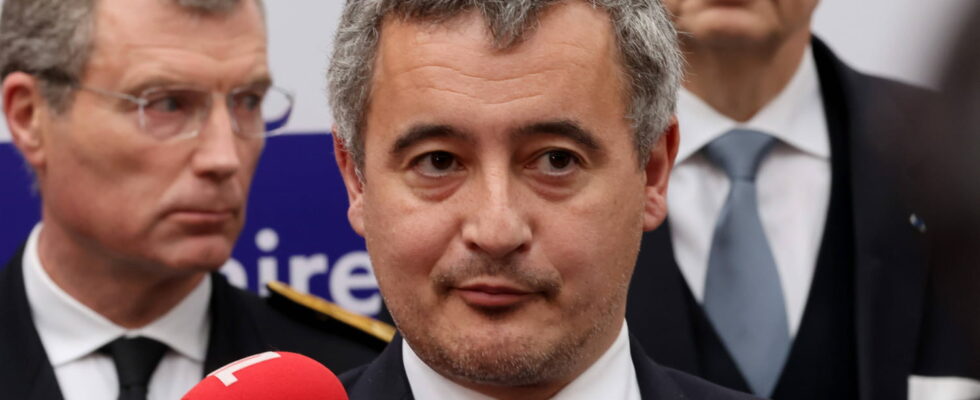The Minister of Justice Gérald Darmanin defends the idea of placing the “100 biggest drug traffickers” incarcerated in solitary confinement. Faced with this measure which would be difficult to apply, prison officers have another proposal.
Gérald Darmanin wants to show that he is at work. The Minister of Justice made his third trip this Thursday, January 2, only ten days after his appointment to the Bayrou government, and he recalled one of his priorities: the fight against drug banditry and organized crime. A fight that he has already led at the Ministry of the Interior for four years. He has also decided to go to the judicial court of Marseille, a city in which gang wars linked to drug trafficking have led to around twenty homicides in 2024 and where his predecessor had presented the “plan to fight against drug trafficking”. two months ago.
On site, Gérald Darmanin hammered home his proposal to put the “100 biggest drug traffickers” already incarcerated in solitary confinement to prevent them from continuing their trafficking from prison. A shock announcement made on December 28, but whose feasibility does not convince prison officers or even magistrates. And for good reason, the minister is faced with a major problem: prison overcrowding while the country has more than 80,000 prisoners for 62,404 places normally available. If the prisons are full, this is also the case with the isolation areas: “Today, the isolation areas are full in all the prisons,” said Emmanuel Chambaud, general secretary of the UFAP-UNSa Justice union. , on franceinfo on January 2.
Not only are these isolation quarters occupied, they are often occupied by detainees incarcerated for terrorism, notes Ménya Arab-Tigrine, lawyer at the Paris bar, on the same media. This treatment of people tried for terrorism is at the origin of Gérald Darmanin’s idea, but the number of places is insufficient to isolate these two types of detainees. “We would have to choose between one and the other and we cannot imagine that we would choose a few names in a completely authoritarian manner in a prison without legal criteria,” said Mr. Arab-Tigrine. A choice and criteria which, according to the lawyer, also raise questions concerning the identification of the “100 biggest drug traffickers” out of the 17,000 people imprisoned for acts linked to drug trafficking. “The only ones able to answer the question ‘who are the dangers of public order’ are the magistrates who are subject to a certain level of secrecy”, specifies the lawyer who considers the minister’s proposal “unconstitutional”.
Inmates incarcerated according to their dangerousness
For several prison unions, the solution is not to place all drug traffickers in solitary confinement, but to distinguish prisoners and send them to certain prisons according to their level of dangerousness. “We have been asking for years not to put prisoners of all profiles everywhere, that we can put dangerous ones in certain highly secure establishments, short sentences in others,” explains Catherine Forzi, delegate of FO Pénitentiaire in Marseille, France 3 Provence-Alpes-Côte d’Azur.
A position shared by the regional head of the union, Jessy Zagari: “Today, we are mixing a terrorist with an assassin, a car thief, and someone who is going to deal in the city, putting all that together, Obviously, it contributes to establishing criminal networks outside, when these inmates get out.” This organization capable of serving organized crime shows other limits according to the trade unionist: it requires a high level of security everywhere which “is expensive” but “does not work”.
A discrimination of prisoners to which Gérald Darmanin is in favor as he declared in Marseille: “We must discriminate better against prisoners, to be able to make citizens understand that we are fighting effectively”. But the Minister of Justice is considering another way of marking this difference: isolation accompanied by measures to be reinforced such as the “cleaning of prisons” with seizures of telephones and any means allowing the continuity of trafficking or serving organized crime , as well as jamming techniques that need to be improved. Measures that require resources, while professionals in the prison world are already denouncing an insufficient number of staff, budget and equipment.
